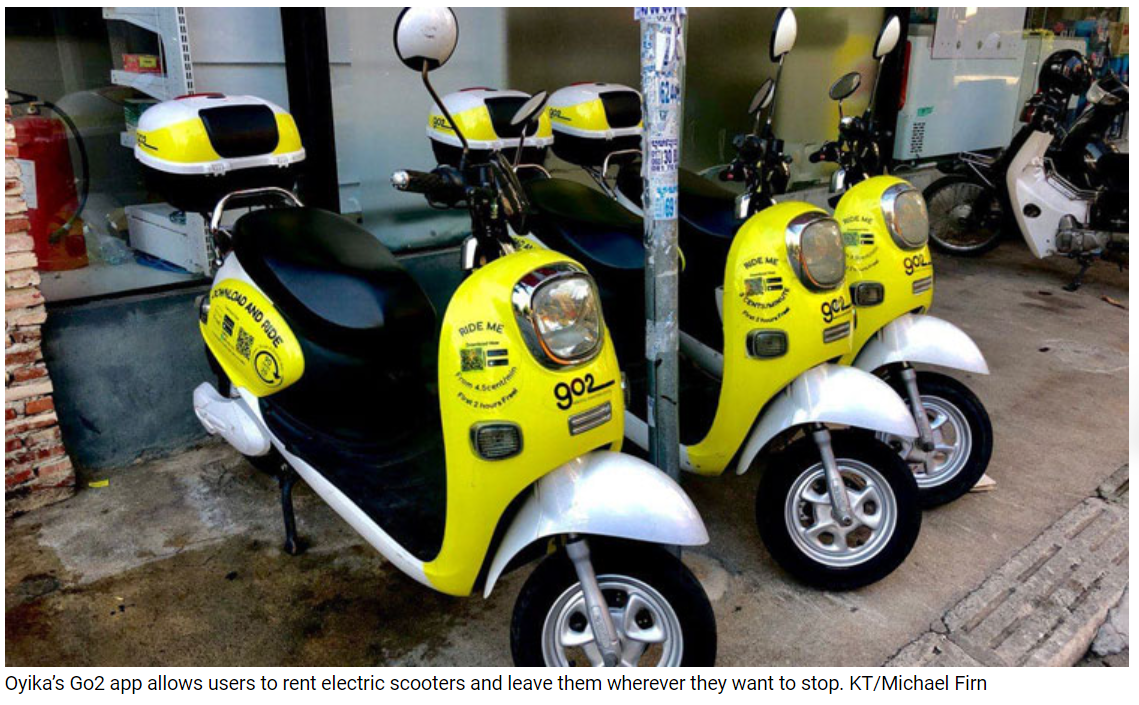Cambodia: Electric vehicle manufactures poised to win-over Kingdom’s highly petrol dominated fleet
The streets of Cambodia’s major cities may be full of huge, gas-guzzling, environment-destroying sports utility vehicles and trucks that only go off road when their owners park them on the pavement, but a growing number of electric vehicle manufacturers are eyeing the Kingdom as an opportunity to sell – or rent – a greener alternative.
It doesn’t mean giving up the prestige of a well-known foreign badge on the bonnet. Jaguar Cambodia is selling its first all-electric SUV, the I-PACE, which will take you from 0-100km/h in 4.8 seconds.
Audi Cambodia is still fixated on fossil fuel however with the Audi e-tron SUV not yet available here.
Another home-grown electric car is unlikely after the failure of Heng Development’s Angkor model, which was launched in 2013. Without an international partner, the Cambodian company made a handful of the gull-winged two-seaters before its business short-circuited.
That said, there will soon be a locally-built electric tuktuk. Ride-hailing and delivery service TADA’s ONiON T1 will be available to hail on the streets of Phnom Penh from the start of next year. Drivers are being encouraged to buy the green Grab-alternative with low-interest loans and blockchain based crowdfinancing.
“We’re mainly targeting commercial drivers,” said MVL TADA founder Kay Woo. “In Cambodia the tuktuk is becoming one of the main [modes of] transportation for everybody. Four-wheelers are too expensive for individuals. Three wheelers were introduced two to three years ago and became the mainstream of public transportation,” he said.
Turkish delivery company Getir has set the standard for food-by-bike options with its fleet of silent but stylish E-bikes on the streets of London. Singapore-based Oyika is hoping the Cambodian capital will soon follow the trend.
“We are currently negotiating with several delivery companies in Phnom Penh on a price point that would make our electric vehicles significantly cheaper that the incumbent petrol fuelled motorcycles,” a spokesperson said. “Our mission is to lower the barriers to EV adoption and we believe the primary barrier to adoption is price. We are currently driving prices down beyond parity with petrol driven motorbikes to increase delivery rider uptake.”
Oyika is already targeting eco-friendly commuters in the capital with its $1,210 eGo scooter, tempting them with the offer of free battery swaps for two years. It also rents the bikes with the Go2 app. Scanning your driving license into a smartphone registers you for the scheme, allowing you to find the nearest bike, unlock it with a QR code, ride it for 5 cents a minute and leave it for collection wherever you end up. The range is 80km per battery and there are 12 swapping stations around the city with a target of 38 by the end of this year.
Aside from Oyika, there are two other established e-scooter sellers in Cambodia. Voltra Motors has released the OFF-ROAD and MATRIX. Thada sells the OX.
While many countries are phasing out petrol-powered vehicle, Cambodia has no plans to turn off the gas any time soon. The Kingdom has not yet developed a low carbon vehicle policy or strategy, according to the Global Green Growth Institute. It says the number of EVs on the streets is unknown. Oyika sees that as an opportunity
“There are approximately 4 million motorbikes in Cambodia and we estimate that less than 0.5% of them are electric, so there’s a lot of upside,” the company said.
Source: https://www.khmertimeskh.com/50909807/electric-vehicle-manufactures-poised-to-win-over-kingdoms-highly-petrol-dominated-fleet/


 Thailand
Thailand




